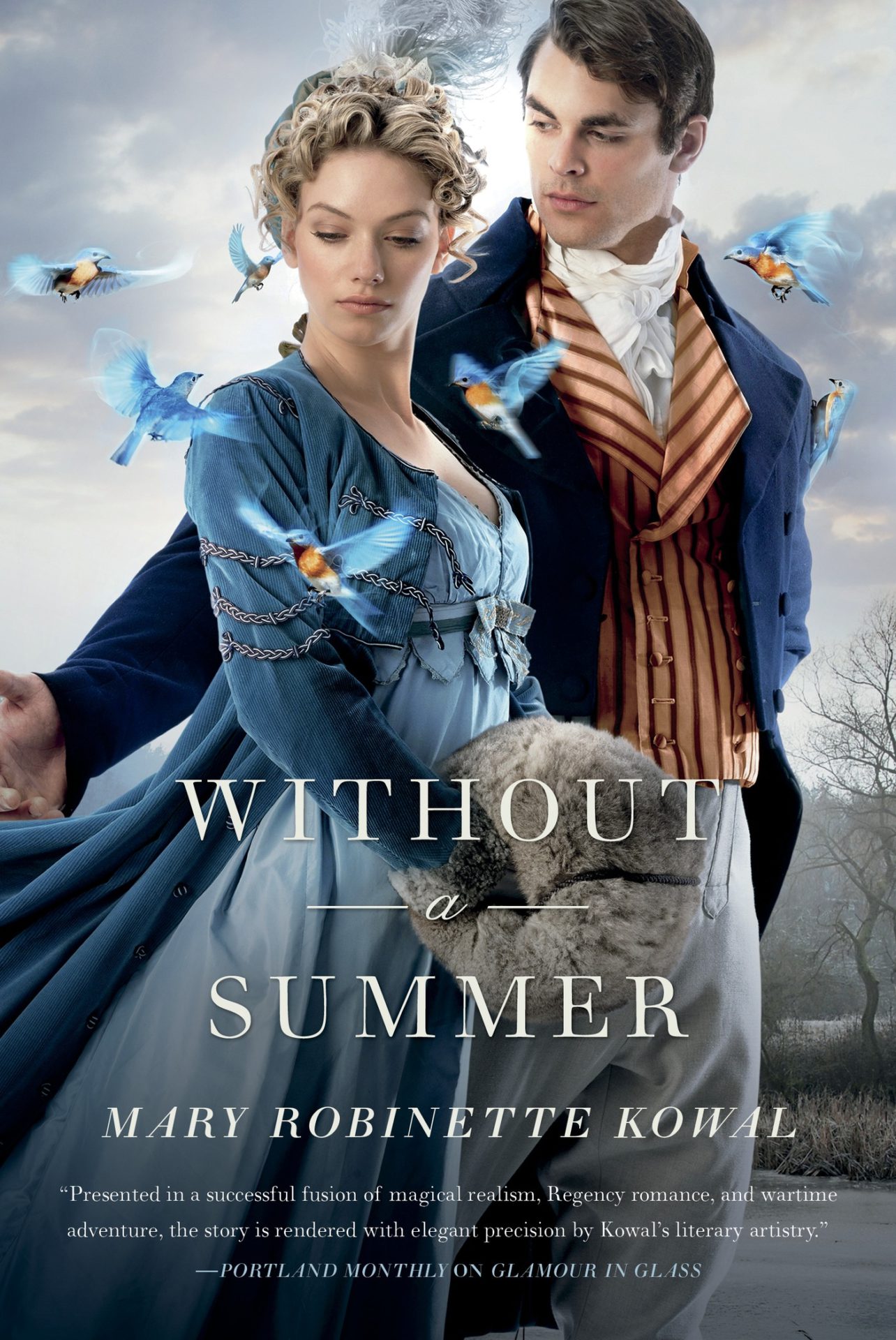Without A Summer
The magical book that might result if Jane Austen’s Emma were set against the Luddite uprising in the Year Without a Summer
Up-and-coming fantasist Mary Robinette Kowal enchanted fans with award-winning short stories and beloved novels featuring Regency pair Jane and David Vincent. In Without a Summer the master glamourists return home, but in a world where magic is real, nothing—even the domestic sphere—is quite what it seems.
Jane and Vincent go to Long Parkmeade to spend time with Jane’s family, but quickly turn restless. The year is unseasonably cold. No one wants to be outside and Mr. Ellsworth is concerned by the harvest, since a bad one may imperil Melody’s dowry. And Melody has concerns of her own, given the inadequate selection of eligible bachelors. When Jane and Vincent receive a commission from a prominent family in London, they decide to take it, and take Melody with them. They hope the change of scenery will do her good and her marriage prospects—and mood—will be brighter in London.
Once there, talk is of nothing but the crop failures caused by the cold and increased unemployment of the coldmongers, which have provoked riots in several cities to the north. With each passing day, it’s more difficult to avoid getting embroiled in the intrigue, none of which really helps Melody’s chances for romance. It’s not long before Jane and Vincent realize that in addition to getting Melody to the church on time, they must take on one small task: solving a crisis of international proportions
Praise
Readers will appreciate the realistically warm and loving romance between Jane and Vincent all the more for their flaws and foibles, as their relationship is tested by internal and external forces.
—Publishers Weekly
…an emotionally involving story that culminates in a genuinely thrilling climax. With each entry, Kowal’s worldbuilding has only gotten more confident and the series better and better.
—Romantic Times, 4 1/2 Stars, Top Pick!
The underlying fantastical nature of this Regency England continues to flourish, making a unique backdrop for discussing complex topics of social inequality, superstition obscuring scientific fact, and political corruption. Even as the intricate natural and social elements engage readers, it is the sweet, strong emotional connections that draw them back for more.
—Library Journal
Romance, danger, history, and that touch of magic all come together to mingle and subvert tropes into a vivid new substance.
—Locus Magazine

